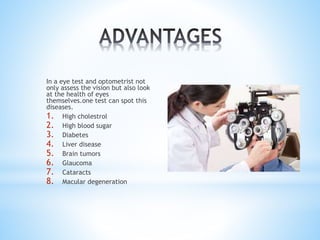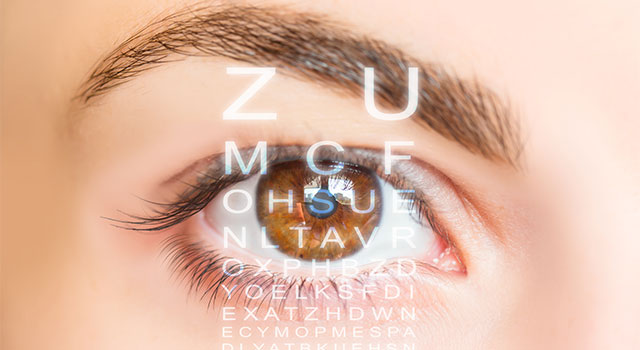Specialized Retina Service Near Me: Top-Notch Eye Treatment Professionals
Understanding the Various Eye Issues Treated by Specialized Eye Treatment Professionals
In the realm of eye treatment, specialized experts play a critical function in detecting and treating a large variety of eye problems. As we embark on this expedition of the numerous eye conditions dealt with by specialized eye treatment specialists, it comes to be apparent that the complex internet of ocular health and wellness holds a myriad of remarkable insights waiting to be revealed.
Usual Refractive Mistakes
Refractive mistakes prevail visual problems brought on by a blemish in the eye's capacity to correctly focus light, leading to blurred vision. One of the most prevalent kinds of refractive mistakes include myopia (nearsightedness), hyperopia (farsightedness), astigmatism, and presbyopia. Myopia happens when the eyeball is as well long or the cornea is as well curved, creating distant challenge show up blurred. Hyperopia, on the other hand, happens when the eyeball is too brief or the cornea is also flat, bring about nearby objects being out of emphasis. Astigmatism is identified by an irregularly designed cornea, causing altered or obscured vision at all distances. Presbyopia is an age-related condition where the lens sheds its versatility, making it tough to focus on close objects.
These refractive mistakes can be corrected with various techniques, consisting of glasses, call lenses, or refractive surgical treatment. Eye care specialists play an important duty in identifying and managing refractive mistakes to aid people accomplish more clear vision and enhance their lifestyle.
Age-Related Eye Conditions
As people age, their eyes may be prone to a range of problems beyond refractive errors that can affect their vision and total ocular health and wellness. Age-related eye problems are common and can substantially impact the high quality of life for older grownups. One of one of the most prevalent age-related eye problems is age-related macular degeneration (AMD), a disease that creates main vision loss and can make tasks like reading and driving difficult. refractive surgeries in al. Cataracts, an additional usual condition among older individuals, create clouding of the eye's all-natural lens, resulting in blurred vision. Glaucoma, defined by damage to the optic nerve, is likewise extra prevalent with age and can result in field of vision loss or loss of sight if left untreated. Additionally, presbyopia, a condition where the eye's lens sheds adaptability, is an all-natural part of aging and results in problem concentrating on close objects. Routine eye tests with specialized eye care experts are critical for very early discovery and monitoring of these age-related eye problems to maintain vision and keep ocular wellness as people get older.
Vision-Threatening Conditions
Vision-threatening conditions include an array of severe ocular conditions that have the possible to considerably affect a person's eyesight and general aesthetic function. These diseases pose a threat of long-term vision loss if not quickly diagnosed and treated by specialized eye care professionals. Some usual vision-threatening diseases consist of glaucoma, diabetic retinopathy, age-related macular deterioration (AMD), and retinal detachment.
Glaucoma is a group of eye problems that harm the optic nerve, usually due to high intraocular stress, leading to outer vision loss and potential blindness if left unattended. AMD is a dynamic problem impacting the macula, leading to central vision loss.
Early detection, routine eye tests, and timely treatment are critical in managing vision-threatening illness to maintain vision and preserve quality of life. Specialized eye care specialists play an important duty in diagnosing, dealing with, and taking care of these problems to avoid permanent vision loss.

Corneal Disorders
Corneal disorders incorporate a range of problems that impact the transparent front part of the eye, called the cornea. These conditions can result in discomfort, visual disruptions, and in serious cases, vision loss. One typical corneal disorder is keratoconus, where the cornea thins and protrudes exterior right into a cone form, causing astigmatism and blurred vision. Corneal dystrophies, such as Fuchs' dystrophy, cause steady vision loss because of unusual deposits in the cornea. Corneal abrasions, often triggered by injury or foreign things, can result in discomfort, inflammation, and sensitivity to light. In addition, infections like keratitis can irritate the cornea, possibly resulting in scarring and vision disability if not immediately treated. Therapy for corneal disorders differs depending on the certain problem however might include drugs, get in touch with lenses, or in severe situations, corneal transplants. Regular eye examinations are vital for very early discovery and monitoring of corneal disorders to preserve vision and eye health.
Neurological Eye Conditions
Neurological eye conditions include disorders that affect the link in between the eyes and the brain, affecting visual processing and overall eye function. official statement These conditions can manifest in numerous means, influencing vision, eye movements, and even the control between the eyes. One common neurological eye condition is optic neuritis, defined by inflammation of the optic nerve leading to vision loss, shade desaturation, and discomfort with eye activity.
One more substantial problem is nystagmus, where the eyes make recurring, unrestrained motions, affecting aesthetic acuity and deepness perception. In addition, conditions like amblyopia, often referred to as "careless eye," result from uncommon visual growth in early childhood years, causing minimized vision in one eye.
Neurological eye problems need specific care from experts like neuro-ophthalmologists who have proficiency in both neurology and ophthalmology. Diagnosis usually involves blog a detailed eye evaluation, imaging research studies, and collaboration with specialists to address the underlying neurological problems affecting the aesthetic system. Treatment approaches can include drug, vision treatment, or in severe instances, surgical treatments to manage these complicated problems successfully.

Conclusion
In final thought, specialized eye treatment experts treat a large range of eye my website conditions, including usual refractive errors, age-related eye conditions, vision-threatening illness, corneal problems, and neurological eye problems - refractive surgeries in al. By recognizing these different conditions and looking for proper treatment from eye treatment experts, individuals can keep optimal eye health and vision. It is necessary to focus on normal eye evaluations and follow suggested treatment strategies to preserve and protect one's vision for the future